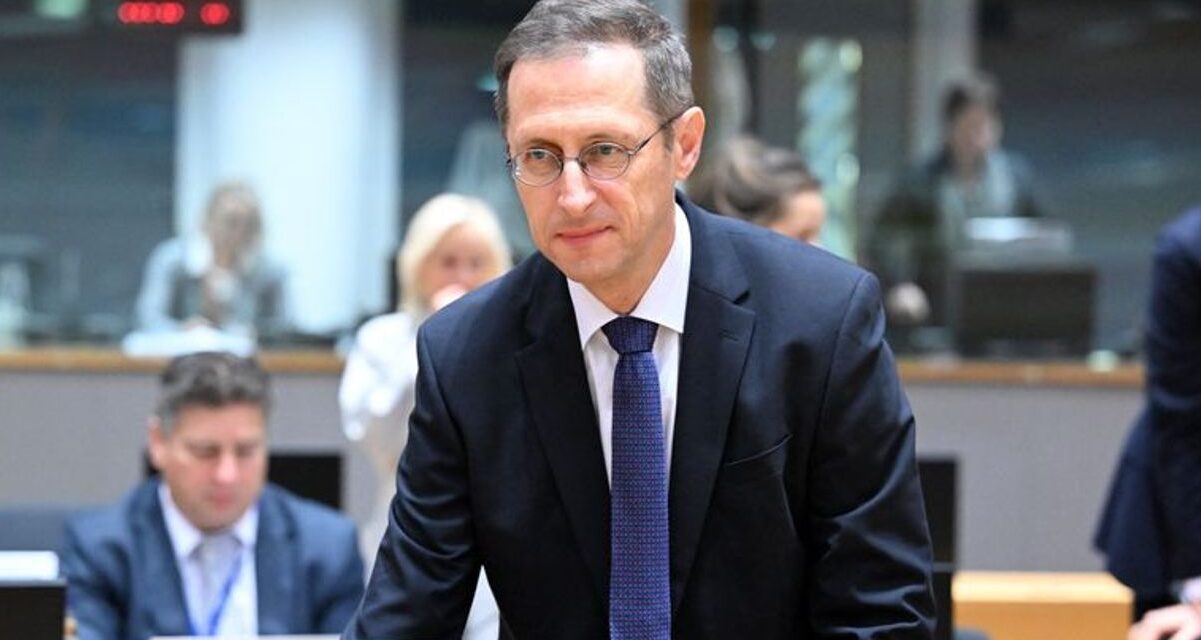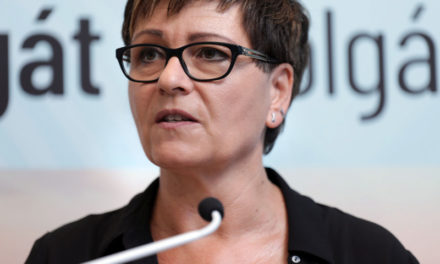"The euro is not a guarantee for anything, nor is it a current issue, as the conditions must be met again first. Although it is worth considering the possibility, the most important thing right now is to put the Hungarian economy on a sustainable and stable growth path," said Finance Minister Mihály Varga at the iCon Intelligent Economy conference in Sopron on Saturday.
The head of the ministry pointed out that growth now requires sober consideration.
"There is no debate on economic policy on the government's table, that should be left to the economists who work in research institutes. The most important goal of the cabinet is to assign economic instruments to specific goals"
- he said when asked what the government's position is regarding the high-pressure economic policy. He then highlighted:
Of course, there is a consensus that the long-term potential growth of the country must be strengthened, and efficiency and competitiveness must also be increased.
Mihály Varga considers it important that the growth started at the end of last year, but this must be reinforced by taking into account the state of the public finances. Last year's public budget deficit was 6 percent, so the growth trajectory that will reduce the deficit must be developed from this. According to the Minister of Finance, after the 5.5 percent in December, inflation may fall even further in January, as a comparison: 3 percent ±1 percentage point is the central bank's tolerance band on an annual basis.
The government does not have an exchange rate target, in contrast to the central bank, which has set both inflation and exchange rate targets - the activity of monetary policy must be interpreted from this point of view. I still do not wish to comment on the central bank's decisions. In general, if the exchange rate strengthens after an interest rate cut, the central bank may have been more cautious than necessary. However, this is no longer true for the past few days, as the forint unfortunately hit a three-month low this week.
The Minister of Finance believes that, in order to convey the stability of the economic policy to foreign investors, a certain consistency is needed on the part of monetary and fiscal policy.
Growth and balance
The head of the ministry stated that when times are difficult, the goal is to protect the previously achieved results, the government kept them, despite the energy crisis and inflation, for example, they did not expand tax incentives for investments. "The government did not release the corporate or business tax benefits related to the investments either. We also kept the 9 percent corporate tax, which is a serious competitive advantage, the government does not agree with proposals that would increase the tax burden on businesses."
But according to him, a sober consideration is needed now. Fiscal policy is doing its job, the sources guaranteeing long-term growth are not blocked or put at risk.
VARGA MIHÁLY HAS VETO RIGHTS IN THE BUDGET COUNCIL, WHICH GUARANTEES THAT THE ECONOMY REMAINS ON A SUSTAINABLE AND CALCULABLE GROWTH TRACK.
When asked what he had vetoed so far, Mihály Varga emphasized:
If there is a type of initiative that is not included in the budget, or if there is an additional demand and there is no guarantee for funding, I will veto it immediately".
He stated that each ministry must create a list of preferences:
I'll give you an example. This year, we planned HUF 20 billion for the national road network development program. If I receive a proposal that fits within this budget, we will let it go. At the same time, if it goes beyond it and we do not see it in the preference list submitted by the relevant ministry, we will veto it. Why? Because we believe that the reserve frame does not allow for this right now.
This budget review takes place in the budget working group - members of which include Antal Rogán, the minister who heads the Prime Minister's Cabinet Office, Gergely Gulyás, the minister who heads the Prime Minister's Office, and Balázs Orbán, the prime minister's political director. After the economic and strategic cabinet meeting, the Ministry of Finance will receive the proposal, and we will review it from a public finance point of view.
after the decision of the economic and strategic cabinet, a budget countersignature is also required.
The euro is not a solution
At the panel discussion at the iCon Intelligent Economy conference, the Minister of Finance also said that
when planning the budget, you can stretch until the blanket is ready. You can spend a little too much, but only within certain limits. "The budget cannot deviate from the real economy."
The minister stated that inflation is still a close enemy. As long as it does not return to a moderated environment, however, in January, according to him - due to the online cash registers, the government can track price trends even on a daily basis - the monthly inflation could be below 5 percent.
The disciplined fiscal policy must be continued, the deficit and the debt must be continuously reduced.
"We can support growth with a sane, disciplined budget."
At the same time, according to Mihály Varga, the deficit cannot be drastically reduced, because it would cause serious damage. "The public budget deficit should not reach the target range in 1, but 2 years", according to him, the market can accept this year's ratio of 4 and 4.5 percent.
Regarding tax policy, he stated that it is never an independent strategy, "an organic part of the political context of a larger economy". He then reminded that the Hungarian tax system is competitive: "we are the first in attracting foreign capital".
"We promised a competitive tax system, I think we have fulfilled that," he concluded.
He recalled that the structure of the state debt has improved significantly: the state's foreign currency debt has decreased, the term of the state debt has increased to an average of 6 years, which is thus much safer, and the public's role in financing has also increased significantly. "In the case of the latter, while we inherited a 3 percent level from the failed left-wing governments, today it has become 21. Government paper plays a major role in people's savings".
"The euro is not a goal, but a means"
"The euro is not a success story everywhere." He reminded that the Slovak economy did not become more successful because of the euro, and even that the Hungarian economy overtook it.
"So the euro is not a guarantee for anything. Moreover, it is not even a current issue, the conditions must be met again first. Nevertheless, it is worth considering the possibility, but the most important thing is that the country is now on a long-term and stable growth path."
Featured image: AFP













